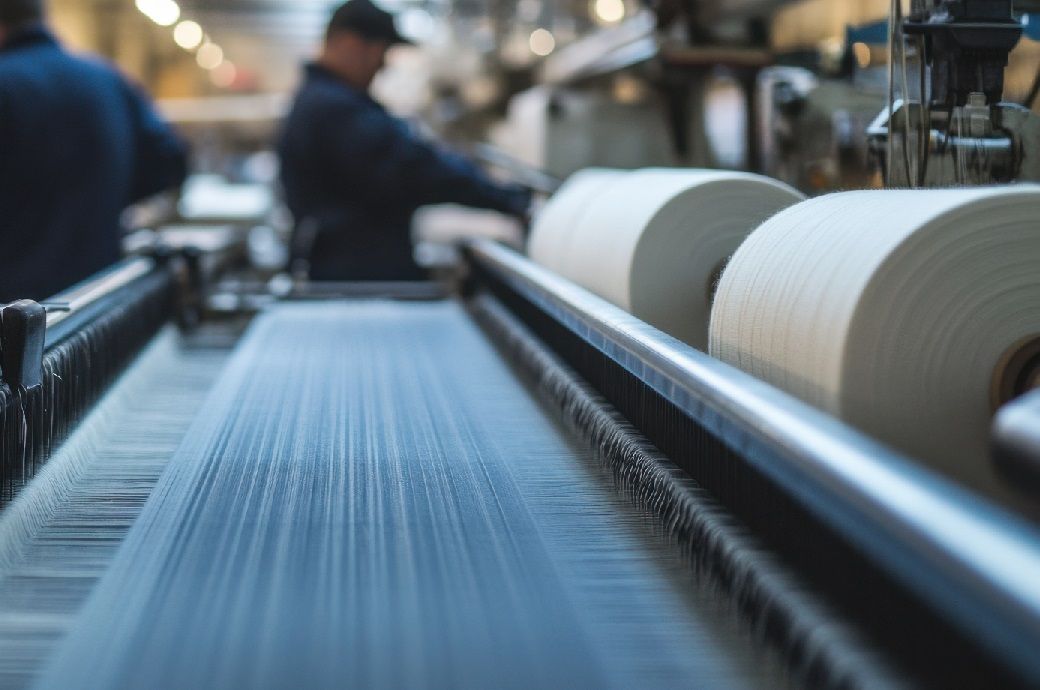
The Ludhiana market noticed average to slow demand from the downstream industry. Market participants are trying to get a clear direction on budget provisions. The market saw stability in cotton yarn prices. A trader from the Ludhiana market told Fibre2Fashion, “Higher duty on knitting fabric may provide indirect support if it really proves effective in checking the flooding of fabric. Importers are trying to find a way to escape the provision of higher duty.” The Indian government has imposed a duty of 20 per cent or ₹115 per kg (whichever is higher) on knitting fabric, mainly imported from China.
In Ludhiana, 30-count cotton combed yarn was sold at ₹260-270 (approximately $2.98-3.10) per kg (inclusive of GST); 20 and 25-count combed yarn were traded at ₹250-260 (approximately $2.87-2.98) per kg and ₹255-265 (approximately $2.92-3.04) per kg, respectively; and carded yarn of 30-count was noted at ₹240-245 (approximately $2.75-2.81) per kg today, according to trade sources.
Cotton yarn weakened in the Delhi market as well, but prices remained stable as mills tried to hold them. The market is also facing tight payment conditions, which is hurting sentiment. According to market sources, there are speculations that importers may escape the higher import duty imposed on knitting fabric. However, the falling Indian rupee against the US dollar is a positive factor for cotton yarn, enhancing its competitiveness in the international market.
In this market, 30-count combed knitting yarn was traded at ₹260-262 (approximately $2.98-3.01) per kg (GST extra), 40-count combed at ₹282-290 (approximately $3.23-3.33) per kg, 30-count carded at ₹237-239 (approximately $2.72-2.74) per kg, and 40-count carded at ₹262-265 (approximately $3.01-3.04) per kg today.
India’s home textile hub, Panipat, also ignored budget provisions. Retail demand and manufacturing activities across the entire value chain remained weak. Recycled yarn, cotton comber, and recycled polyester fibre were traded at previous levels. Traders said the Panipat market is facing higher production capacity and lower demand from both domestic and international markets. Budget provisions were also unable to boost market sentiment.
In Panipat, 10s recycled PC yarn (Grey) was traded at ₹78-82 (approximately $0.89-0.94) per kg (GST paid). Other varieties and counts were noted as follows: 10s recycled PC yarn (Black) at ₹53-56 (approximately $0.61-0.64) per kg, 20s recycled PC yarn (Grey) at ₹96-102 (approximately $1.10-1.17) per kg, and 30s recycled PC yarn (Grey) at ₹130-135 (approximately $1.49-1.55) per kg. Cotton comber prices were noted at ₹101-106 (approximately $1.16-1.22) per kg. Recycled polyester fibre (PET bottle fibre) was noted at ₹81-84 (approximately $0.93-0.96) per kg today.
In North India, cotton prices further eased due to slow demand and weakness in ICE cotton. Domestic cotton prices declined by ₹10 per maund of 37.2 kg, losing ₹60-70 per maund in the last week. Traders said that weakness in ICE cotton dampened sentiment in the local market. Spinning mills are slow in buying despite decreasing arrivals. Cotton arrivals have dropped below 10,000 bales in North India.
North India’s cotton arrival was 9,000 bales of 170 kg, comprising 500 bales in Punjab, 2,500 bales in Haryana, 3,500 bales in Upper Rajasthan, and 2,500 bales in Lower Rajasthan. Cotton prices in Punjab ranged from ₹5,490 to ₹5,500 (approximately $62.97-63.09) per maund of 37.2 kg, while in Haryana, prices ranged from ₹5,470 to ₹5,490 (approximately $62.74-62.97). In Upper Rajasthan, cotton was priced between ₹5,500 and ₹5,520 (approximately $63.09-63.32) per maund. In Lower Rajasthan, it was priced at ₹52,500 to ₹53,500 (approximately $602.19-613.66) per candy of 356 kg, while seed cotton was priced at ₹7,000-7,300 (approximately $80.29-83.73) per quintal of 100 kg.
ALCHEMPro News Desk (KUL)
Receive daily prices and market insights straight to your inbox. Subscribe to AlchemPro Weekly!